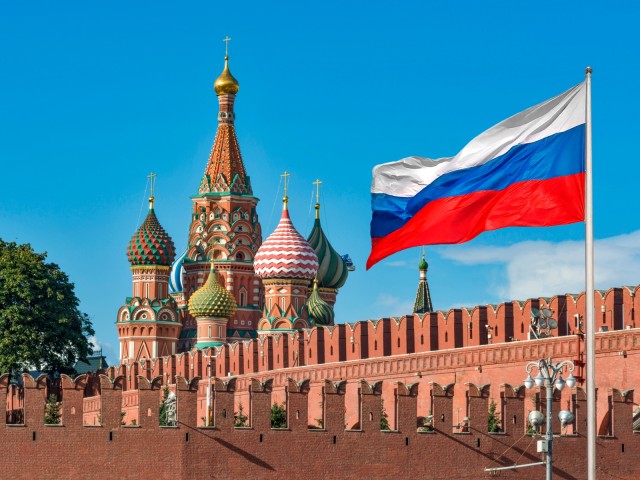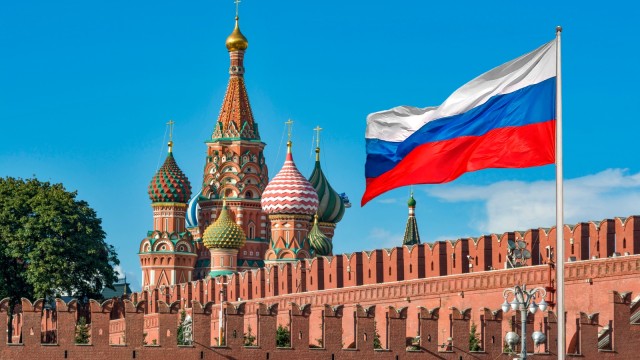November 15, 2024
Russia's economy in war mode
Impressive growth, but it can’t last.


For almost three years now, Putin's Russia has been waging an unprovoked war of aggression against Ukraine. The toll in terms of lives lost and human misery on both sides is horrific. Yet, the Russian economy appears to be thriving, leaving Germany trailing in the dust in terms of growth (see Figure 1). Russia's unemployment rate stands at a meager 2.6% – full employment! How is this possible?
Fig. 1: GDP growth Russia versus Germany
A war economy in full swing
The answer lies in a red-hot war economy. Production in warcritical industries has doubled since the war began , while the rest of the manufacturing sector stagnates. There are also significant one-off investments in infrastructure to redirect oil and gas from Europe to Asia. High commodity prices and booming trade with China and India allow for financing without significant budget deficits.
The hard times are yet to come
However, the Russian boom is built on shaky ground. Even before the war – or as Putin wants us to call it, the "special military operation" – Russia's long run growth prospects were bleak and have since deteriorated further. The transformation to a statecontrolled war economy brings with it increasingly economic practices inspired by Soviet-era central planning. This lowers the maximum potential productivity growth. It also makes a shift from a resource-based to a more diversified economy even more unlikely. Even the once well-funded national wealth fund, which had been fed by oil and gas revenues, has been depleted by Putin to finance the war. How can the Russian economy ever become more diversified?
One is reminded of former U.S. presidential candidate John McCain's 2014 remark (back when the Republican Party still existed...): "Russia is a gas station masquerading as a country."
Demographic challenges intensify
However, the biggest issue facing the Russian post-war economy is likely to be demographic. Even before the war, the United Nations projected an annual population decline of over half a million people. Now, an estimated 600,000 soldiers have fallen at the front – so far. Plus, there are the young, mostly male and well-educated Russians who are fleeing the country to avoid conscription and oppression. Since the war's onset, almost a million people have left Russia. One hundred thousand IT profes?sionals are believed to have emigrated. With whom does Putin plan to develop the country in the future?
Making sanctions watertight
Russia's economy has proven more resilient than many, including myself, expected, and this is partly due to porous sanctions. Kyrgyzstan has particularly distinguished itself as a hub for sanction evaders. German exports to the Central Asian country have increased more than tenfold compared to pre-war levels. It is reasonable to assume that most of these goods are being smuggled into Russia. In fact, the imports from Germany recorded by Kyrgyz customs are much less than Germany's exports to the country. The intermediaries in Bishkek don't even bother pretending that the goods are staying in Kyrgyzstan.
It is high time the EU plugs these gaps and adds Kyrgyzstan to the sanctions list. This won't destroy Russia's economy, but it could destabilize the regime if the supply of German cars and French handbags deteriorates.
Download To the point!
-
1.2 MB | November 15, 2024
This publication is addressed exclusively at recipients in the EU, Switzerland, Liechtenstein and the United Kingdom. This report is not being distributed by LBBW to any person in the United States and LBBW does not intend to solicit any person in the United States. LBBW is under the supervision of the European Central Bank (ECB), Sonnemannstraße 22, 60314 Frankfurt/Main (Ger many) and the German Federal Financial Supervisory Authority (BaFin), Graurheindorfer Str. 108, 53117 Bonn (Ger many) / Marie-Curie-Str. 24-28, 60439 Frankfurt/Main (Germany). This publication is based on generally available sources which we are not able to verify but which we believe to be reliable. Nevertheless, we assume no liability for the accuracy and completeness of this publication. It conveys our non-binding opinion of the market and the products at the time of the editorial deadline, irrespective of any own holdings in these products. This publication does not replace individual advice. It serves only for informational purposes and should not be seen as an offer or request for a purchase or sale. For additional, more timely in-formation on concrete investment options and for individual investment advice, please contact your investment advisor. We retain the right to change the opinions expressed herein at any time and without prior notice. Moreover, we retain the right not to update this information or to stop such updates entirely without prior notice. Past performance, simulations and forecasts shown or described in this publication do not constitute a reliable indicator of future performance. The acceptance of provided research services by a securities services company can qualify as a benefit in supervisory law terms. In these cases LBBW assumes that the benefit is intended to improve the quality of the relevant service for the customer of the benefit recipient. Additional Disclaimer for recipients in the United Kingdom: Authorised and regulated by the European Central Bank (ECB), Sonnemannstraße 22, 60314 Frankfurt/Main (Germany) and the German Federal Financial Supervisory Authority (BaFin), Graurheindorfer Str. 108, 53117 Bonn (Germany) / Marie-Curie-Str. 24-28, 60439 Frankfurt/Main (Germany). Deemed authorised by the Prudential Regulation Authority. Subject to regulation by the Financial Conduct Authority and limited regulation by the Prudential Regulation Authority. Details of the Temporary Permissions Regime, which allows EEA-based firms to operate in the UK for a limited period while seeking full authorisation, are available on the Financial Conduct Authority’s website.



